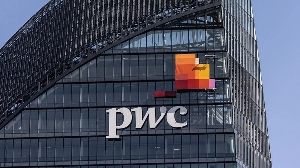The banking sector is facing a seismic shift in customer expectations, with speed and expertise emerging as the new battlegrounds for customer loyalty.
A comprehensive survey by PwC Ghana, encompassing over 4,700 retail, SME, and corporate banking customers, has revealed that traditional pillars of customer experience (CX) are being supplanted by more pragmatic demands.
The findings come as the Ghana Association of Banks reports a sector-wide profit margin of 37 percent before taxation, marking a significant rebound from last year’s losses attributed to the Domestic Debt Exchange Programme (DDEP).
Key findings
The survey reveals several crucial insights into customer preferences in the banking sector. A significant majority of customers, 64 percent, place a high priority on short wait times when visiting bank branches, indicating a strong demand for efficiency in face-to-face interactions. This desire for speed is further emphasised by the fact that 60 percent of respondents expect to complete their banking tasks within just 10 minutes.
The trend towards digital banking is clear, with over half – 53 percent – of customers expressing a preference for conducting their banking activities through digital channels rather than traditional methods.
Among those who favor digital platforms, mobile apps have emerged as the clear frontrunner, with 64 percent of digital banking users identifying them as their preferred method of interaction.
These findings collectively point to a shift in customer expectations towards faster, more convenient banking services, with a particular emphasis on digital solutions and efficiency in all interactions.
“The customer experience landscape is evolving rapidly. Banks that fail to adapt to these new priorities risk losing market share in an increasingly competitive environment,” Vish Ashiagbor, Country Senior Partner at PwC Ghana said.
The survey results also revealed a distinct hierarchy of customer priorities in the banking sector. At the top of this list is speed of service, indicating that customers value quick and efficient interactions above all else.
Following closely is the predictability of outcomes, suggesting that customers appreciate consistency and reliability in their banking experiences. The third priority is employee knowledge and expertise, highlighting the continued importance of well-informed staff in an increasingly digital landscape.
Easy access to services ranks fourth, emphasizing the need for convenient and readily available banking options. Rounding out the top five is engaged staff, indicating that while customers prioritize efficiency, they still value meaningful interactions with attentive bank employees. This hierarchy provides a clear roadmap for banks looking to enhance their customer experience, emphasizing the need to balance technological efficiency with human expertise and engagement.
Notably, WhatsApp has emerged as the dominant communication channel, with 42 percent of respondents citing it as their preferred platform for bank interactions. This represents a significant shift from traditional social media channels and presents both opportunities and challenges for banks’ digital strategies.
Despite the push towards digital, the human element remains crucial. 64 percent of customers value staff with strong product knowledge, while 47 percent prioritize process expertise. This underscores the need for banks to balance digital innovation with ongoing staff development.
The findings come at a critical juncture as banks look to fully recover to pre-DDEP levels. PwC believes survey provides a roadmap for enhancing customer experience in line with evolving expectations.
Industry analysts suggest that banks which successfully integrate these findings into their CX strategies could see significant gains in customer acquisition and retention. However, implementation may require substantial investments in technology infrastructure and staff training.
Business News of Monday, 22 July 2024
Source: thebftonline.com













